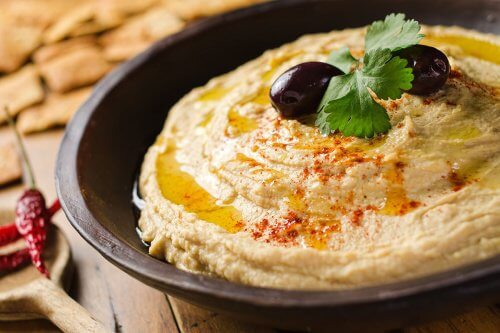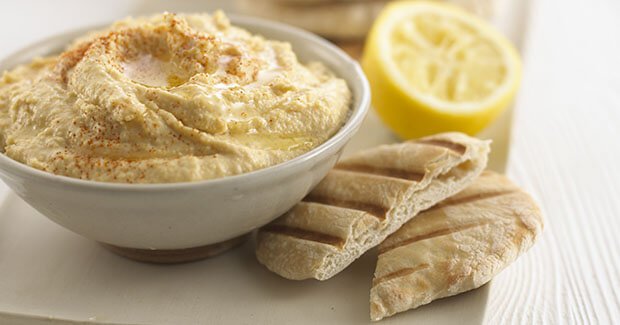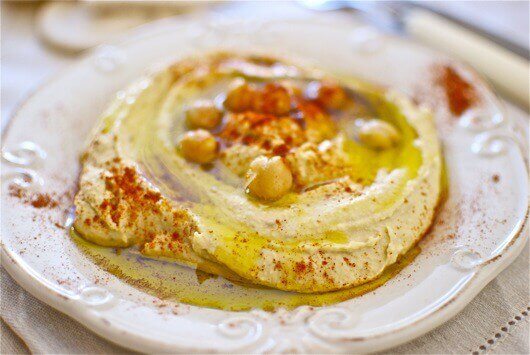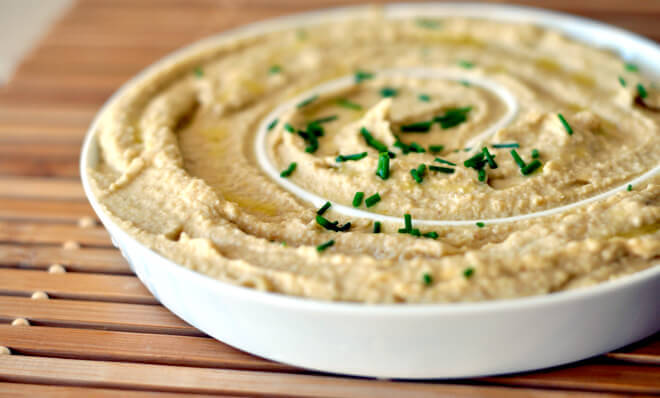Hummus for Depression: A Natural Antidepressant


Written and verified by psychologist Valeria Sabater
Have you heard of hummus for depression? Have you tried it yet? Although not well-known, little by little it’s finding a spot on American tables.
If you like chickpeas, you’re going to love hummus. This enticing paste is nothing more than a mix of lemon juice, olive oil, garlic, paprika, sesame seeds, olives, and as its base: chickpeas.
The recipe varies a little from country to country, but its ingredients couldn’t be healthier.
In fact, many studies, which we’ll detail below, already describe it as a superfood and an effective remedy for treating depression.
Want to learn more about hummus?
The amazing benefits of hummus for depression
Hummus is an essential dish in Middle East cuisine. Countries like Turkey, Leba, on, Syria and even Greece and Cyprus often enjoy this healthy recipe.
Although you can find hummus in many supermarkets, there are many people who prefer to make it at home to guarantee the freshness and quality of the ingredients.
Fresh lemon juice, some tender chickpeas, and spices according to your personal taste will guarantee the richest hummus sure to be in line with your preferences.
What benefits does this soft and delicious paste have to offer? We’ll tell you:
Also read: Natural Treatments to Fight Depression
Hummus is a great natural antidepressant

A 2007 study conducted by the University of Tel Aviv (Israel) revealed the following:
- Hummus is a natural anti-depressant with effects similar to medications used to treat the disease.
- Hummus provides a sensation of well-being due to its ability to increase the secretion of serotonin. This is explained by the healthy combination of paprika and olive oil. Both contain a type of amino acid that fosters this hormone.
- Hummus satisfies the appetite, relaxes and helps you fall asleep.
Hummus for depression: a rich in vegetable protein
We’re talking about chickpeas, one of the richest sources of proteins that serve as a base for many recipes. And we love it!
It’s interesting to know that it’s a part of many athletes’ diets because of the energy it provides.
Thanks to the olive oil and lemon juice, it’s also rich in antioxidants that help digestion.
In addition, it’s filling and regulates blood sugar levels.
A portion of complete food for the whole family
You already know that hummus is rich in vegetable proteins, but check out its nutritional values.
It’s fantastic for the whole family!
- Iron
- Potassium
- Calcium
- B complex vitamins
- Magnesium
- Folic acid (perfect for pregnant women and growing children).
- It’s rich in thiamin and riboflavin, two types of vitamins that strengthen the muscles and nervous system.
- Hummus also contains retinol, a basic compound that keeps tissues young and elastic.
- Because of its high antioxidant content, hummus is great for managing hypertension and improving cardiac health.
- This food is also good for eliminating uric acid thanks to its diuretic properties.
Hummus for depression improves digestion

Do you suffer from constipation? Do you need to cleanse your colon and body in general? Then add hummus as a regular part of your diet.
It’s healthy carbohydrates absorb slowly, providing steady energy and regulating blood sugar levels.
The fiber in chickpeas, along with the lemon juice, garlic, olive oil, and healthy spices improve intestinal transit and help flush toxins from the colon.
Visit this article: 3 Infusions to Clean the Colon and Intestines
Hummus is low in fat
As we mentioned above, the foods that go into hummus are really healthy, rich in essential fatty acids, like linoleic acid, oleic acid, and Omega 3 fatty acid.
Hummus is great on rye bread. If you put it on raw carrots and celery, you’ll enjoy a snack that’s as tasty as it is healthy.
Hummus has anticancer benefits

Thanks to the power of antioxidants and garlic, which acts as a natural antibiotic, we can fight many of the harmful cells that can develop into a tumor.
We can’t forget the folic acid and saponins, highly suitable for defending against the genetic cell damage that causes cancer.
Did you enjoy this hummus for depression article?
Enjoy!
All cited sources were thoroughly reviewed by our team to ensure their quality, reliability, currency, and validity. The bibliography of this article was considered reliable and of academic or scientific accuracy.
- Jukanti, A. K., Gaur, P. M., Gowda, C. L. L., & Chibbar, R. N. (2012). Nutritional quality and health benefits of chickpea (Cicer arietinum L.): A review. British Journal of Nutrition. https://doi.org/10.1017/S0007114512000797
- Giron-Calle, J., Vioque, J., del Mar Yust, M., Pedroche, J., Alaiz, M., & Millan, F. (2004). Effect of chickpea aqueous extracts, organic extracts, and protein concentrates on cell proliferation. Journal of Medicinal Food. https://doi.org/10.1089/1096620041224175
- Magee, P. J., Owusu-Apenten, R., McCann, M. J., Gill, C. I., & Rowland, I. R. (2012). Chickpea (Cicer arietinum) and other plant-derived protease inhibitor concentrates inhibit breast and prostate cancer cell proliferation in vitro. Nutrition and Cancer. https://doi.org/10.1080/01635581.2012.688914
- Gupta, N., Bisen, P. S., & Bhagyawant, S. S. (2018). Chickpea Lectin Inhibits Human Breast Cancer Cell Proliferation and Induces Apoptosis Through Cell Cycle Arrest. Protein & Peptide Letters. https://doi.org/10.2174/0929866525666180406142900
- Thomson, M., & Ali, M. (2003). Garlic [Allium sativum]: A Review of its Potential Use as an Anti-Cancer Agent. Current Cancer Drug Targets. https://doi.org/10.1177/21.3.279
This text is provided for informational purposes only and does not replace consultation with a professional. If in doubt, consult your specialist.








